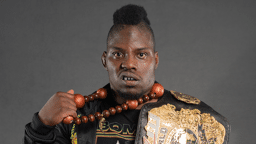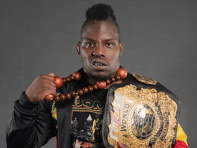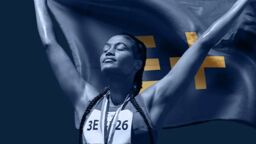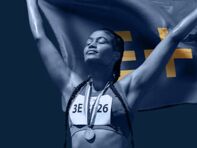For decades the LGBT community has viewed the sports world as the enemy. Sports represented teasing in the high school locker room, gay slurs from Little League coaches and a machismo that flew against some corners of our community.
That began to change in certain circles in the late Seventies and early Eighties. As local gay sports leagues popped up, and events like the Gay Games held their inaugural festivities, LGBT people, and in particular gay men, started on a journey of claiming sports for themselves. Today many hundreds of LGBT sports leagues and events are blossoming across the country.
The coming out of a handful of professional athletes has created a conversation in sports that is inclusive of LGBT people, but it has been Pride Nights held by professional sports teams that have opened the doors of pro sports to our community that in 2017 now seem wide open.
Many view these Pride Nights as a long-awaited sign by the sports world of a warming to the LGBT community. They are certainly that.
The overwhelming — and you could say surprising — success of these Pride Nights in 2017 also shows that the LGBT community, after so many years of keeping sports at arms’ length, is also finally returning the embrace.
No one should be surprised that the Los Angeles Dodgers sold a bunch of tickets for their Pride Night that promised to kick off the city’s Pride celebration in such positive, inclusive fashion. Yet when the team announced it’s jaw-dropping final ticket-sales count of 7,000, it by far eclipsed all expectations and nearly doubled the highest ticket sales of any previous Pride Night in professional sports.
The Philadelphia Phillies, Chicago Cubs and Washington Nationals had routinely posted numbers over 1,000, yet the Dodgers’ new benchmark signaled a sudden, dramatic shift in the LGBT community’s willingness to plunk down those pink dollars and head to the ballpark.
It’s not just the eye-popping numbers of the Dodgers that reveal a sudden trend.
When Noel Guevara, an out lesbian staffer with the Arizona Diamondbacks, contacted Outsports about hosting the team’s first-ever LGBT Pride Night, we were skeptical because her planning was starting only four weeks out from the event. Teams like the Dodgers spend many months creating a fan experience and solid marketing messages; A few weeks for a new event wan’t going to fly.
We were wrong. With limited outreach, we teamed up with the Diamondbacks and local organizations to sell over 400 tickets for the event in just a few weeks.
The expectations of the Colorado Rockies were also exceeded when One Colorado and Outsports teamed up to present that team’s first Pride Night in over a decade. The Rockies are known in part for late-season slumps and an ownership team that has supported anti-LGBT political candidates. Plus, the team initially tiptoed around its embrace of the event, setting aside only 200 seats to be sold for Pride Night.
When early sales pointed to success, team management warmed to the idea of tweeting information about the event and even recognizing several LGBT people on the field before the game.
Despite it not being an official Rockies’ theme night (the team hosts very few of those), 700 tickets were sold and the community was recognized at multiple points during the game.
The Pittsburgh Pirates sold 1,000 Pride Night tickets with little promotion, according to the Delta Foundation of Pittsburgh.
While the St. Louis Cardinals’ organization has demonstrated a checkered past on LGBT issues, the team management seemed to fully embrace its first-ever Pride Night in August, selling around 2,000 tickets for the Pride Night festivities. That the Cardinals were able to do this a month after welcoming anti-LGBT speaker Lance Berkman to Busch Stadium is incredibly significant.
All told, at least 18 of Major League Baseball’s 30 teams will hold a Pride Night this year, all of them selling hundreds or thousands of tickets. These numbers are all considerably higher than any other year.
This year’s Pride Night successes aren’t isolated to baseball.
In Major League Soccer, the Los Angeles Galaxy sold 1,000 tickets to its Pride Night. While the presence of out gay player Robbie Rogers – currently sidelined due to injuries – certainly helped, he’s been with the team for the last few Pride Nights. Yet just like in baseball, the Galaxy’s 2017 messaging fin
In the National Hockey League, many teams in the league held a Pride Night, most of them coming in February for the league’s “Hockey Is For Everyone” campaign. The Pittsburgh Penguins sold over 500 tickets for their night. The Tampa Bay Lightning sold 415 tickets for its Pride Night. These are both in areas that are traditionally more “conservative” than the traditional liberal bastions of San Francisco and New York.
I remember 20 years ago having to “come out” as a sports fan to my gay friends. “Oh that’s so butch” was the common response. I heard “Oh so straight-acting” all the time. That has faded rapidly as pro sports has extended a hand to the LGBT community. In 2017, finally, the LGBT community is reaching back.
BTW, if you haven’t read Bean’s book, you should. It is the ultimate example of the importance of LGBT inclusion in sports. It’s also an incredible story after which you will understand why Bean is the ultimate ambassador for gay athletes in pro sports.






























